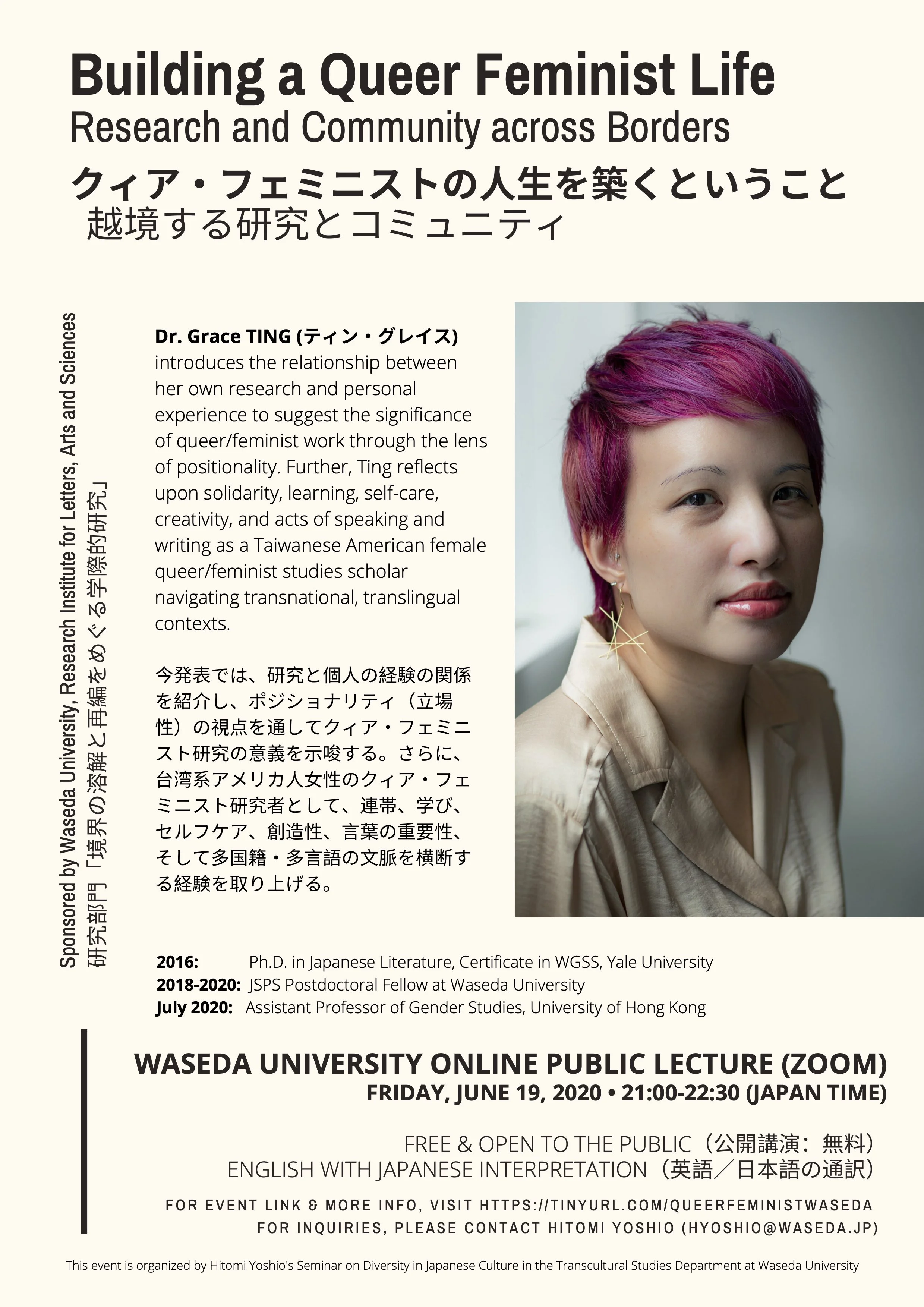Talks
(Selected, 2020-2022)
Building a Queer Feminist Life: Research and Community across Borders (Waseda University, 2022)
クィア ・フェミニストの人生を築くということーー越境する研究とコミュニティ
YouTube (English; Japanese subtitles)
Published version (Japanese)
“...I often feel stuck not only between languages, but also different worlds, with conflicting responsibilities to people and situations happening in separate places. …I will never have time to achieve ‘native-level’ fluency in Japanese or Chinese, and certainly not Korean. My language will always be incomplete, imperfect, and uneven, just as I can never listen with full attention to what is happening in a single language or place. Accordingly, I can also never speak perfectly to any one group—I will always lack some kind of context or background; I will always want to apologize for not getting it right.
But because I find speaking so difficult, I recognize the generosity and immense potential in the moments when we choose to speak and listen to one another. Sometimes this happens through reading and writing, and sometimes through ‘actual’ speaking and listening—what I want to emphasize is the fact that we speak from somewhere, that we are embodied, responding and connecting in the moment, putting something—putting ourselves—out there, even when unsure of the outcome.”
